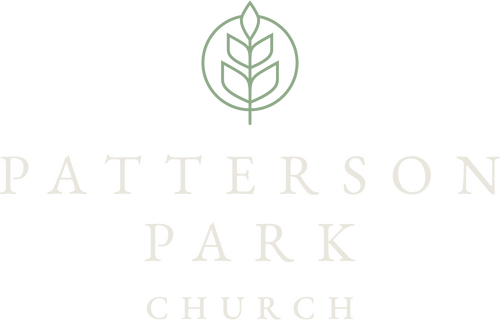Making Room for Lamentation

Photo by Kristina Tripkovic on Unsplash
I saw an ad recently for a “Celebration Center.” I couldn’t tell from the ad what sort of goods or services a “celebration center” had to offer, so I looked it up.
When I googled “celebration center,” I found that there are several kinds of organizations that use that title. They are the social events venues that are used for wedding receptions, class reunions, and the like. Some churches advertise themselves as “celebration centers.” And that’s not a bad way to describe a place where the people of God gather to celebrate the goodness of God.
But the other main category I found was like the one in the ad: it was a funeral home. The funeral industry has moved toward that kind of language, and you will find many of them marketing themselves as “celebration centers.” We gather not to mourn but to celebrate the life of the departed.
But in our hurry to celebrate what is good and what is worthy of celebration, we must not skate past the necessary role and function of lamentation. We need to give ourselves and give one another space and time to grieve. It is not healthy for us to deny that we are deeply sorrowful and that words of cheer and comfort may need to wait while we absorb the spiritual and psychological body-blow of our grief.
Lamentation is biblical.
It’s surprising how much of the Scripture is given over to the subject of lamentation. There is an entire category of the Psalms that are called “psalms of lament,” and there are many of them. They echo with our own questions. Those psalms are studded with sentences that begin with “Why…?” and “How long…?”
Jesus’s own cry from the cross – “My God, my God, why have you forsaken me?” – is the first line in the twenty-second psalm. No doubt suffering Jews had used that psalm for centuries to express their grief and sorrow, and now Jesus uses those words to express his own grief.
We want to rush to the comfort and the hope. We want to assure ourselves that all will be well (it will) and that God has everything under control (He does). All these things are true, and we all want to get there as quickly as we can. But we need to give ourselves time and space and place to express our deep sorrow. We need to give ourselves and one another permission to grieve.
Yes, the psalms of lamentation almost always end in hope and praise, as they should. But they also give full voice to the sorrow that threatens to consume even the people of God. When we are too quick to rush to the bright hope we have in Christ, we tell ourselves and other grieving people that grief isn’t legitimate.
Lamentation doesn’t preclude faith.
Yes, we trust in the living God who keeps His promises. And yes, in the dark days of bewildering uncertainty and loss, we grip more tightly to His promise that He “will not leave us nor forsake us” and His promises that “whoever puts their trust in Him will not be ashamed.” And yes, those stirring words “great is thy faithfulness” are from Jeremiah’s Book of Lamentations (3:23).
It is not wrong to grieve. Even Jesus, the Sinless One, grieved deeply. Outside the tomb of Lazarus He wept, in the Garden of Gethsemane He was wracked with sorrow, on the cross He cried out. He was, as the prophet Isaiah puts it, “a man of sorrows and acquainted with grief.”
So yes, it’s good and proper to admit to ourselves that we’re not all right.
It’s not just okay, it’s actually healthy for us to feel our sorrows deeply and to say so.
So in our days of sorrow and loss, let’s give ourselves permission to be like Jesus, to feel our sorrow and express it to ourselves and to one another and to the God in whom we trust.
Persevere,
Paul Pyle
Pastor of Discipleship
When I googled “celebration center,” I found that there are several kinds of organizations that use that title. They are the social events venues that are used for wedding receptions, class reunions, and the like. Some churches advertise themselves as “celebration centers.” And that’s not a bad way to describe a place where the people of God gather to celebrate the goodness of God.
But the other main category I found was like the one in the ad: it was a funeral home. The funeral industry has moved toward that kind of language, and you will find many of them marketing themselves as “celebration centers.” We gather not to mourn but to celebrate the life of the departed.
But in our hurry to celebrate what is good and what is worthy of celebration, we must not skate past the necessary role and function of lamentation. We need to give ourselves and give one another space and time to grieve. It is not healthy for us to deny that we are deeply sorrowful and that words of cheer and comfort may need to wait while we absorb the spiritual and psychological body-blow of our grief.
Lamentation is biblical.
It’s surprising how much of the Scripture is given over to the subject of lamentation. There is an entire category of the Psalms that are called “psalms of lament,” and there are many of them. They echo with our own questions. Those psalms are studded with sentences that begin with “Why…?” and “How long…?”
Jesus’s own cry from the cross – “My God, my God, why have you forsaken me?” – is the first line in the twenty-second psalm. No doubt suffering Jews had used that psalm for centuries to express their grief and sorrow, and now Jesus uses those words to express his own grief.
We want to rush to the comfort and the hope. We want to assure ourselves that all will be well (it will) and that God has everything under control (He does). All these things are true, and we all want to get there as quickly as we can. But we need to give ourselves time and space and place to express our deep sorrow. We need to give ourselves and one another permission to grieve.
Yes, the psalms of lamentation almost always end in hope and praise, as they should. But they also give full voice to the sorrow that threatens to consume even the people of God. When we are too quick to rush to the bright hope we have in Christ, we tell ourselves and other grieving people that grief isn’t legitimate.
Lamentation doesn’t preclude faith.
Yes, we trust in the living God who keeps His promises. And yes, in the dark days of bewildering uncertainty and loss, we grip more tightly to His promise that He “will not leave us nor forsake us” and His promises that “whoever puts their trust in Him will not be ashamed.” And yes, those stirring words “great is thy faithfulness” are from Jeremiah’s Book of Lamentations (3:23).
It is not wrong to grieve. Even Jesus, the Sinless One, grieved deeply. Outside the tomb of Lazarus He wept, in the Garden of Gethsemane He was wracked with sorrow, on the cross He cried out. He was, as the prophet Isaiah puts it, “a man of sorrows and acquainted with grief.”
So yes, it’s good and proper to admit to ourselves that we’re not all right.
It’s not just okay, it’s actually healthy for us to feel our sorrows deeply and to say so.
So in our days of sorrow and loss, let’s give ourselves permission to be like Jesus, to feel our sorrow and express it to ourselves and to one another and to the God in whom we trust.
Persevere,
Paul Pyle
Pastor of Discipleship
Recent
I Am Moses: How Charlton and Cecil Have Misled Us
February 20th, 2026
The Question Moses Heard
February 13th, 2026
Playing My Part in God’s Long Game: Three Insights
February 6th, 2026
Two Questions That Never Go Away (Part Two)
January 30th, 2026
Two Questions That Never Go Away (Part One)
January 21st, 2026
Archive
2026
January
2025
January
February
March
April
May
July
August
September
October
November
2024
January
February
March
April
May
June
August
September
October
Categories
no categories
